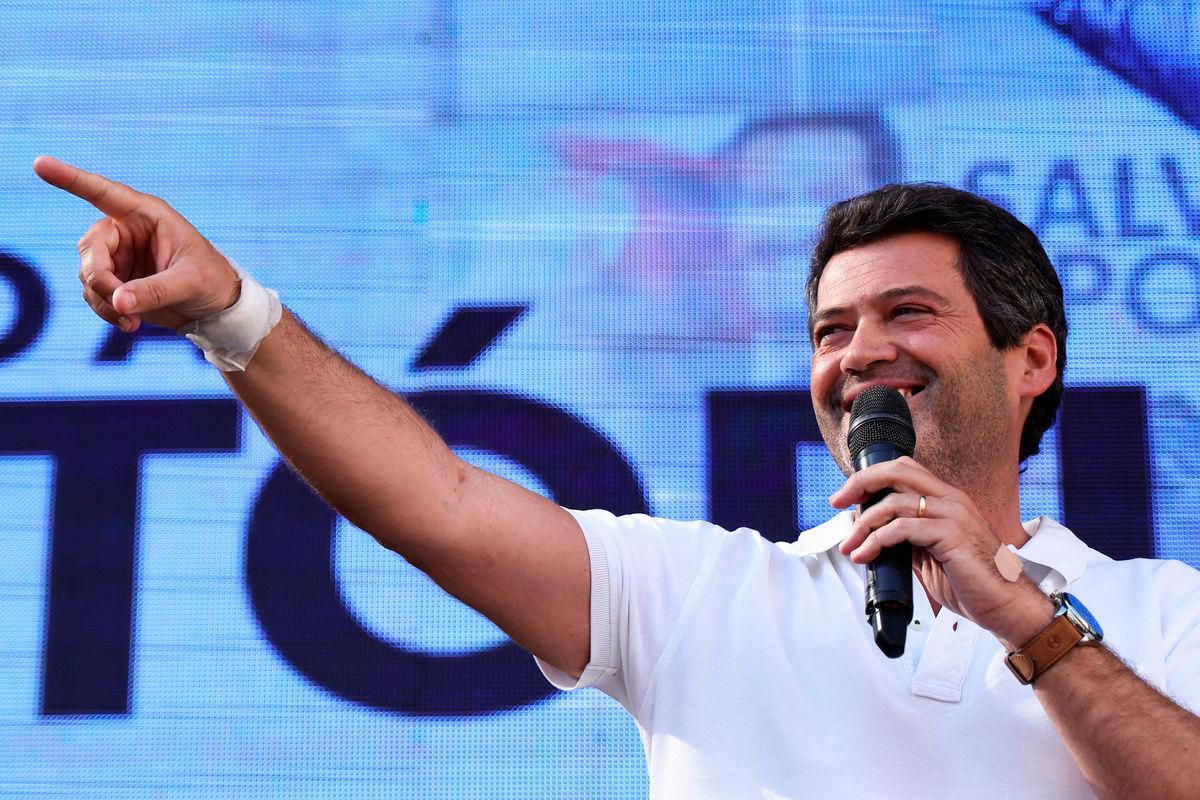LISBON: Voters in Portugal went to the polls on Sunday for the country's third general election in three years, with Prime Minister Luis Montenegro tipped to win, yet without securing a majority in parliament.
Final opinion polls indicate his centre-right Democratic Alliance (AD) is ahead of the Socialist Party (PS) and is likely to pick up more votes but once again fall short of the 116 seats needed in Portugal's 230-member parliament to obtain a ruling majority.
The far-right Chega party is on track to finish third once more, making it a potential kingmaker, although Montenegro has refused to govern with the populist movement.
Polling stations opened at 08:00 am (0700 GMT), with exit poll results expected at 08:00 pm after they close.
Final official results are expected several hours later.
The election in the European Union member state of around 10 million comes at a time when the bloc is grappling with global trade tensions and seeks to beef up its defences.
At a final rally in Lisbon on Friday, Montenegro urged voters to give him a stronger mandate so Portugal can better face this “geopolitical turmoil”.
“We have to do our part at home and we have to be part of the solutions abroad, in Europe and in the world. And for that we need a strong government,“ he said.
Sunday's election was called after Montenegro, a 52-year-old lawyer, lost a parliamentary vote of confidence in March.
He had proposed the confidence vote himself had proposed following accusations of conflicts of interest stemming from his consultancy business.
The company had several clients that hold government contracts.
Montenegro has denied wrongdoing, saying has not been involved in the running of the consultancy, which he has now passed on to his children.
“Voting again,“ daily newspaper Publico headlined on its front page, reflecting public fatigue with another snap election.
Toughened immigration policy
Socialist leader Pedro Nuno Santos, a 48-year-old economist, has accused Montenegro of engineering the election “to avoid explaining himself” about the firm to a parliamentary enquiry.
But only one in five voters feel the case is “very important” and 29 percent think it has no importance at all, according to a final pre-election opinion poll carried out by Lisbon’s Catholic University.
Portuguese voters “have a certain tolerance” for such conflict-of-interest cases, said University of Lisbon political scientist Felipa Raimundo.
“It hasn’t really had the dimension that the opposition would have hoped for in the campaign,“ she added.
Montenegro has cut income taxes for young people, raised pensions and toughened immigration policy, vowing to put an end to what he called a “wide-open doors” policy.
Under a previous Socialist government, Portugal became one of Europe's most open countries for immigrants.
Between 2017 and 2024, the number of foreigners living in Portugal quadrupled, reaching about 15 percent of the total population.
Montenegro's government announced during the campaign the expulsion of some 18,000 irregular immigrants, leading to accusations it was pandering to far-right voters and taking a page from the playbook of US President Donald Trump playbook.
Like other far-right parties that have gained ground across Europe, Chega has tapped into opposition to immigration and concerns over crime.
But Chega has also faced embarrassment, including allegations that one of its lawmakers repeatedly stole luggage from airport carousels.
Its leader, 42-year-old former football commentator Andre Ventura, abruptly left two rallies due to stomach pain during the final week of the campaign.
He was rushed to hospital both days but made a surprise appearance at the party's final event on Friday.









